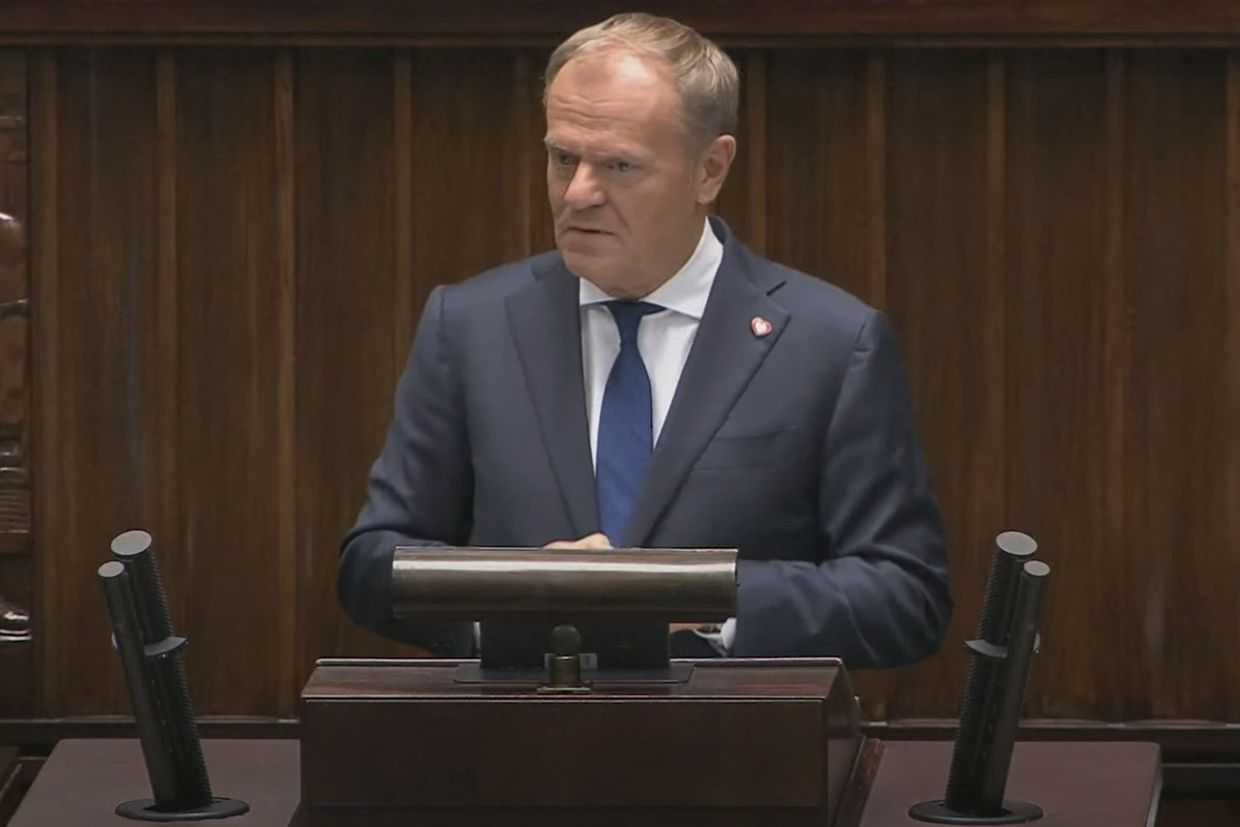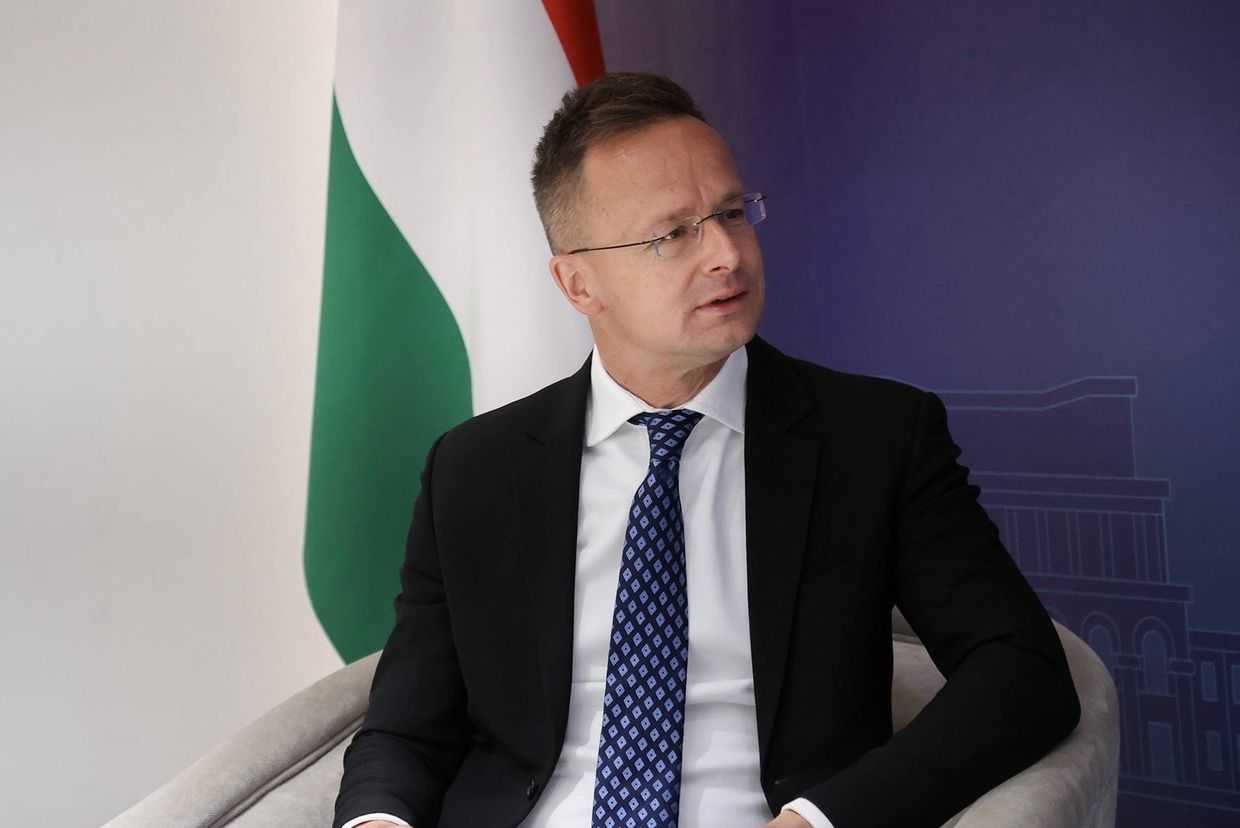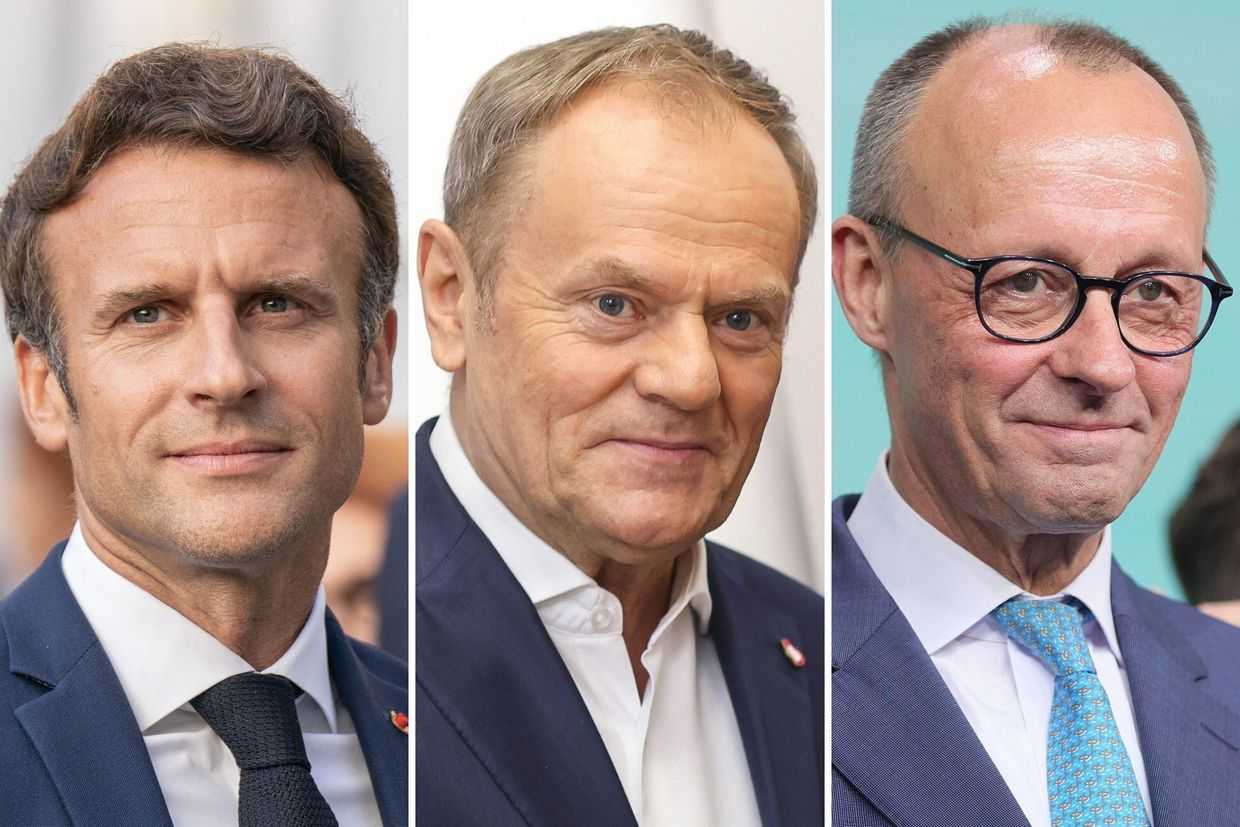
Many Georgians rushed to blame Russia’s interference for this week’s homophobic violence in Tbilisi. However, Poland’s democratic decline offers a better framework to understand what the future holds for Georgia.
When a priest from the Ertatsminda Church, some 50 km west of Tbilisi, found out I was Polish, he became very enthusiastic.
He told me he loved the Polish president, Andrzej Duda, for declaring that marriage was a union between man and woman, and for fighting against the ‘LGBT agenda’. He said that Europe wasn’t completely lost if there were politicians like Duda. Of all the topics he could have spoken about, he chose to go on a long homophobic rant. He didn’t mention Russia.
On 5 July, thousands of people gathered in central Tbilisi to protest against the planned Pride march. The protest soon turned into a hunt for journalists and people they thought were queer — with earrings, tattoos, or just wearing bright colours.
The protesters were mobilised by the Georgian Orthodox Church and the few police deployed to the streets stood almost idle as over fifty journalists were beaten by the violent mob. They accused all but the fringe alt-right media for being complicit in spreading ‘gay propaganda’.
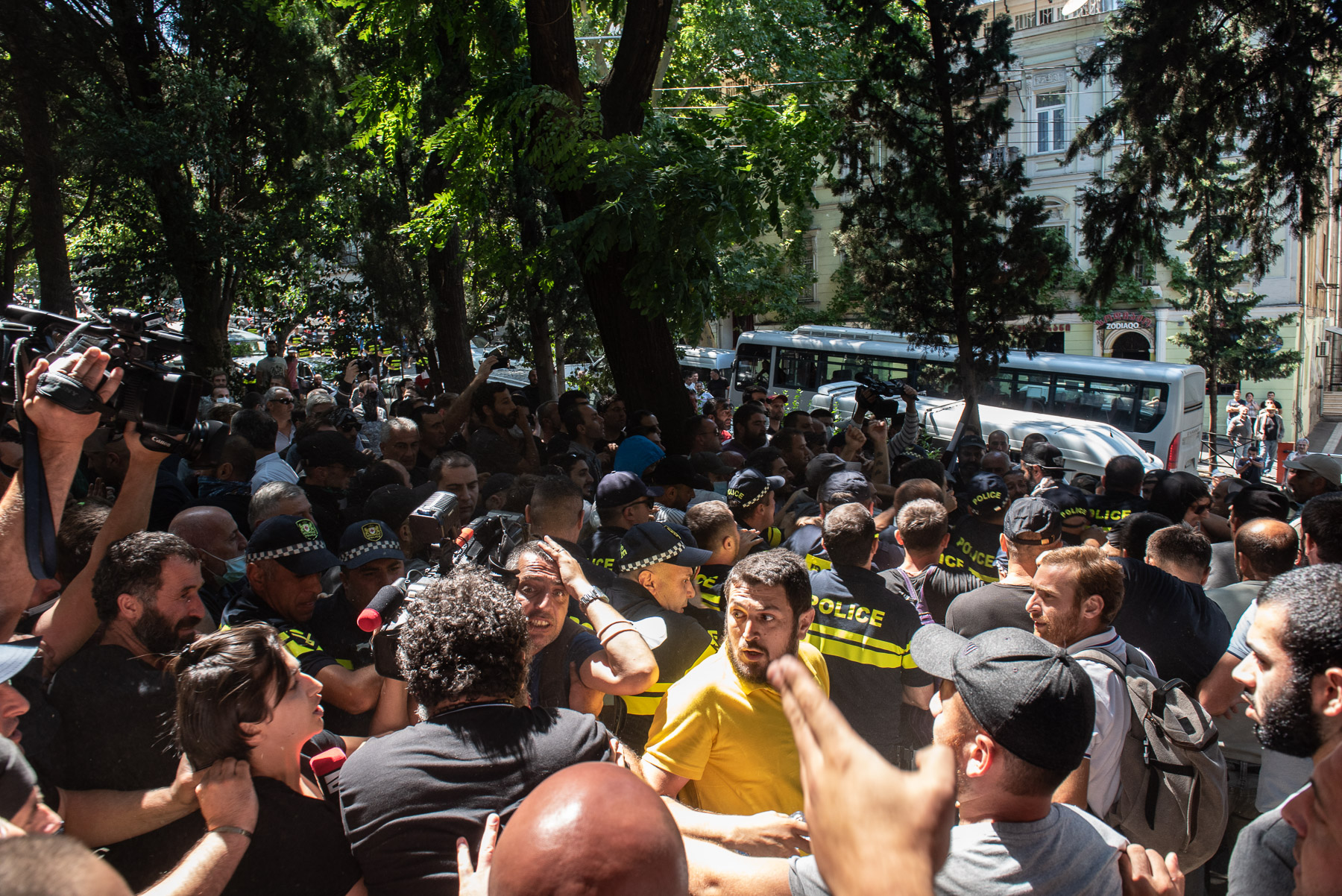
Georgian liberals were quick to frame the violence through the issue of Russia’s continued attempts to divert Georgia from its pro-Western course. But when I was there in front of the parliament, I didn’t see Russians — I saw Georgians of all ages waving Georgian flags, wearing chokhas, dancing traditional Georgian dances, and praying and singing in Georgian.
They reminded me of Russia as much as they reminded me of Kaczyński’s Poland, Orbán’s Hungary, Bolsonaro’s Brazil, or Trump’s America.
If you follow the social media discussions of the younger generation of Georgia’s far right, they look up to the West — just like Georgian liberals who waved European and rainbow flags in front of the parliament the day after the homophobic mayhem.
They carefully follow the latest debates on ‘white genocide’, ‘cultural Marxism’, or ‘gender/LGBT ideology’. They passionately hate the Black Lives Matter protests on the other side of the globe. The Russian Orthodox Church does enjoy an influence over the Georgian Church, but the ideological trends that galvanise Georgian conservatives are global. Whatever Russia is trying to export is just a piece of a worldwide illiberal revolution.
Sovereign democracies
Polish conservatives, with their Messiah complex, would like to be the leaders of such a revolution. Poland is also a perfect example of how you don’t need Russia to wage a war against ‘European values’.
Poland is one of the most Russophobic countries in the world. Unlike Georgia, where both the government and opposition constantly accuse each other of working for Russia, in Poland such accusations are rare — it’s just not conceivable that a large Russian fifth column could exist in the country. The anti-Russian sentiment is particularly strong among the conservatives in power. Unlike in Georgia, Polish people don’t listen to Russian music or watch Russian films. Many travellers complain that if asked for directions in Russian, Poles will simply walk away.
And yet, Poland’s conservative government is de facto committed to advancing Russia’s foreign policy priorities: weakening the European Union from the inside, corruption of Western security structures, dismantling of the rule of law, compromising the idea of democracy and human rights under the guise of safeguarding ‘sovereignty’ and ‘family values’, weaponising media for political ends and corrupting the ideal of universal truth, and creating internal instability by escalating societal polarisation.
In Reporters Without Borders’ 2021 World Press Freedom Index, Poland — a poster child for democratic transition — fell so far down that it was overtaken by Georgia and Armenia. Freedom House wrote earlier this year that Poland’s democratic decline has been unprecedented in the history of their democracy scores.
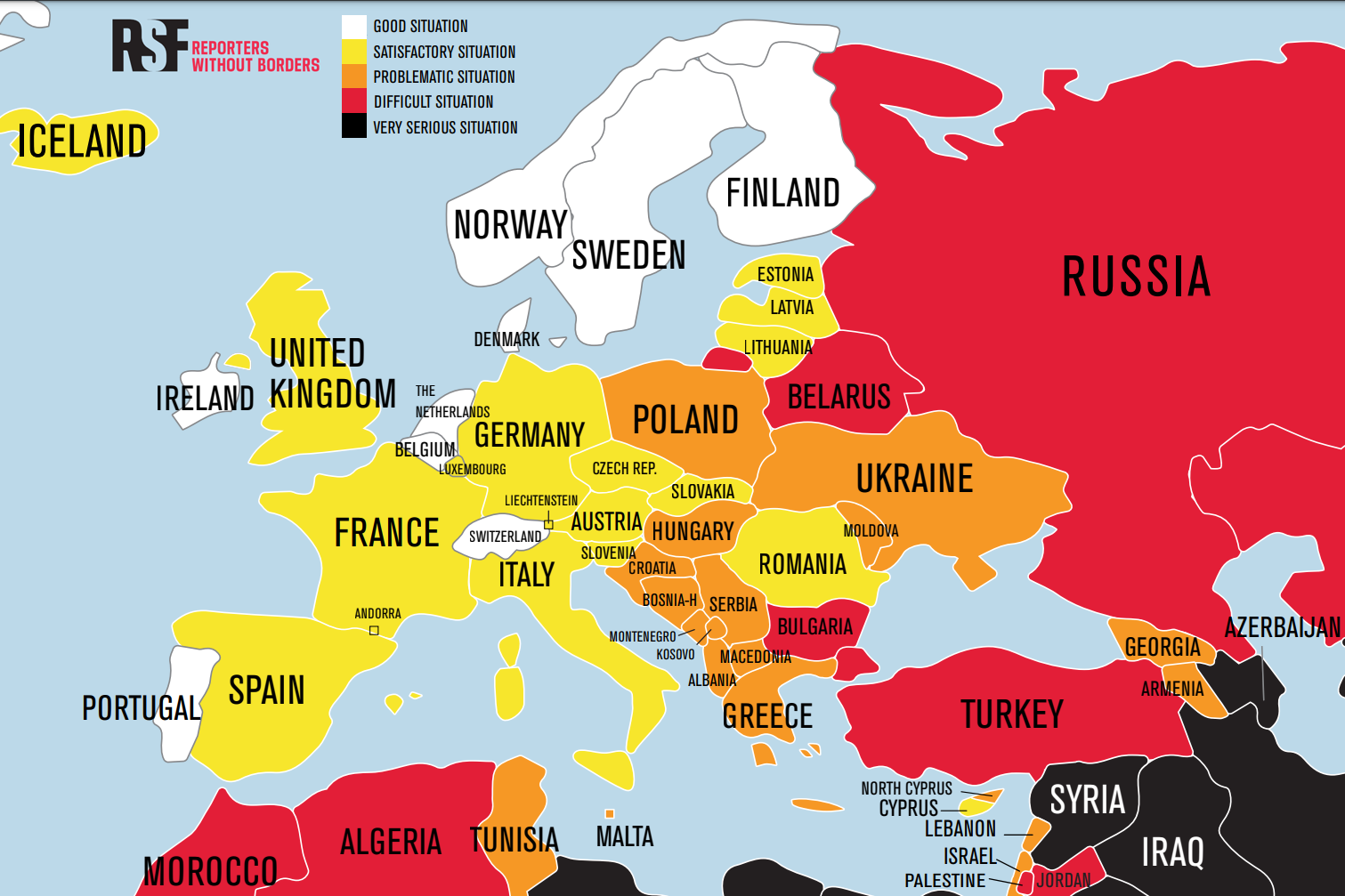
Strikingly, the Polish Embassy in Tbilisi was one of the only four Western diplomatic missions in Georgia that didn’t condemn the 5 July violence against queer people and journalists, even though one Polish citizen was stabbed (the other three were the Vatican, Romania and neutral Switzerland — even Hungary signed the statement). The public acceptance of violence is minuscule in Poland in comparison to Georgia, but the Polish diplomats’ silence on the plight of these two specific groups is telling. There is also the argument that one shouldn’t get involved in other countries’ internal affairs. Putin’s sovereign democracy?
Poland’s case shows that there can be an overlap between local developments and Russian foreign policy priorities without a direct link. Conceptualising the Georgian far right exclusively through the lens of Russian interference is a misdiagnosis that prevents root issues from being correctly identified — and addressed.
The Polish scenario
The rise of illiberal regimes in Central and Eastern Europe (and not only) have one common denominator — a religious-like faith in economic liberalism and lack of wealth redistribution. Liberal policies created a precariat of disenfranchised and disempowered people whose political potential only waits to be harvested.
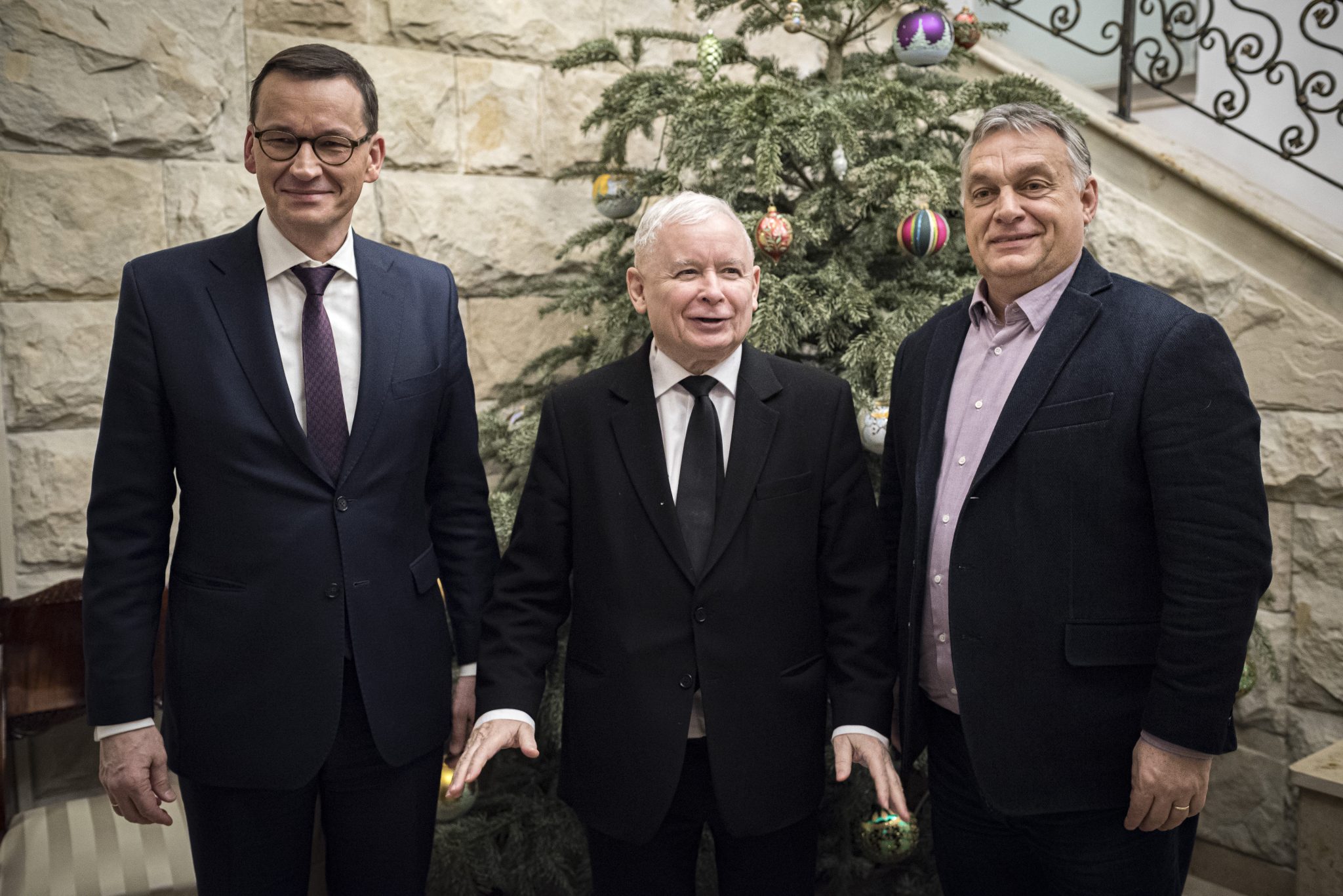
Polish conservatives managed to do just that — they rallied their voters around a narrative of ruthless and unjust transition to capitalism and a promise of delivering economic equality. They incorporated internal and external enemies (Germany, the EU, the ‘gay lobby’, the media) into their ideology and allowed the Catholic Church to set the tone for social policies.
Yet Poland has never been near as poor and unequal as Georgia is now. Georgian liberals keep underestimating the widespread economic despair and each time react with surprise when the precariat’s hidden anger erupts. Gender issues are central to the conservative mobilisation, but I don’t think queer rights alone can make people behave like rabid animals, uncaged and let into the streets with a bloodlust.
Georgia’s two-party system, devoid of any proper ideological divide and with largely irrelevant smaller and satellite parties, has long been compromised in the eyes of society.
In Poland, the ruling Law and Justice Party has won time and again with a mix of welfare politics and ultraconservatism. As soon as a charismatic leader emerges in Georgia, such a new political force could well sweep through the Georgian political scene with a promise of basic economic security and protecting ‘traditional values’. Georgia will join Poland’s illiberal revolution.
Georgian homophobic protesters tore down the EU flag twice from in front of the parliament this week. It’s a symbolic event foreshadowing a shake-up on Georgia’s political scene. It will soon come to haunt freedom and democracy-loving Georgians — who are much fewer than it seems from the inside of our bubbles.
The opinions expressed and place names and terminology used in this article are the words of the author alone, and may not necessarily reflect the views of OC Media’s editorial board.


